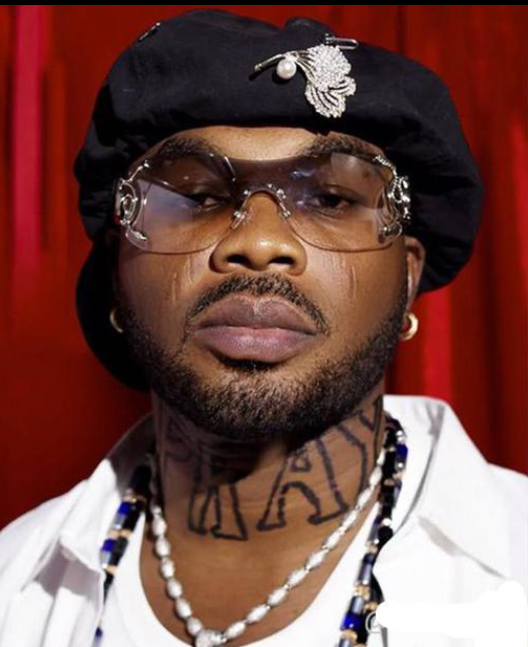
“Afrobeats Is Losing Its Spark” – Slimcase Warns Artistes to Slow Down as He Says Their Sound Is Becoming Boring

Nigerian singer and street-hop sensation, Slimcase, has sparked a heated conversation in the entertainment industry after publicly calling out Afrobeats artistes for what he describes as an “overload of music” that is slowly killing the excitement of the genre. The energetic performer, known for his unique slang and street anthems, took to social media to express his displeasure over the excessive number of songs and albums being released by Nigerian artistes within short periods, warning that the constant flood of music is making the sound stale and repetitive.
In a post that has since gone viral, Slimcase didn’t mince words as he urged Afrobeats stars to “take a chill pill” and rethink their creative approach. He wrote, “Too many songs, too many albums. Una too Dey put una self for pressure for this Naija sha. Take a chill pill and be like Rihanna. Do other things and come back give us a fresh vibe. Your sounds are getting boring cus dem be coming too much in a year.” The singer’s blunt statement immediately drew mixed reactions from fans and fellow artistes, reigniting a long-standing debate about the sustainability of Afrobeats’ current trajectory.
Slimcase, whose real name is Oluwafemi Oladapo Oko-Eko, is no stranger to speaking his mind. He further emphasized that it’s only natural for artistes to take breaks and evolve, noting that even global stars like Rihanna have taken years off music to explore other ventures and return with a more refined and refreshing sound. “I owe dem a song this year and that’s it. It’s only God that is new every morning. Everyday, every second singles and albums dey kill Afrobeats gradually. It’s not fun anymore,” he added.
His post, though brief, carried a powerful message that resonated with many music lovers who have recently complained about a growing sense of monotony in Afrobeats. Over the past few years, the Nigerian music industry has seen an unprecedented surge in output, with artistes dropping back-to-back singles, deluxe albums, and extended plays (EPs) almost every few months. While this has fueled Afrobeats’ global dominance, some critics argue that the overproduction of content is compromising quality and creativity.
Social media users were quick to react to Slimcase’s outburst, with opinions split down the middle. Some fans applauded him for saying what many have been afraid to voice, pointing out that several artistes are beginning to sound alike and are recycling the same beats, melodies, and lyrical themes. “He’s right,” one Instagram user commented. “Every week there’s a new project and they all sound the same. Nobody is experimenting anymore. It’s just vibes without depth.” Another user wrote, “Slimcase might be controversial but he said the truth. Afrobeats needs to breathe.”
However, not everyone agreed with his viewpoint. Some fans argued that the music industry thrives on consistency and that the fast-paced nature of the Nigerian entertainment scene leaves no room for long breaks. “If you rest too long, people will forget you,” one user countered. “This is Nigeria, not America. The moment you slow down, another artiste will take your spot.” Others suggested that the oversaturation Slimcase described is simply a sign of healthy competition in a booming industry where everyone wants to stay relevant.
Industry insiders have also weighed in on Slimcase’s remarks. A popular music analyst who spoke anonymously said that while Slimcase’s concerns are valid, the problem goes beyond quantity. “The issue is not necessarily that artistes are dropping too many songs,” he explained. “It’s that many of them are not evolving creatively. You can release music frequently and still keep it fresh if you reinvent yourself with each project. The problem is that too many are chasing trends instead of setting them.”
The analyst further pointed out that the digital era has played a huge role in the current music overload. With streaming platforms rewarding consistent output and short attention spans dominating online spaces, artistes feel pressured to stay visible by constantly releasing new content. “It’s a survival tactic,” he said. “In this streaming age, if you disappear for too long, your streams and engagement drop. So even if the music isn’t groundbreaking, artistes would rather flood the market than risk being forgotten.”
Slimcase’s reference to Rihanna struck a particularly strong chord. The Barbadian superstar famously stepped away from music for several years to focus on her Fenty beauty and fashion empire before making a triumphant return to the stage. For Slimcase, this approach exemplifies how taking time off can lead to creative renewal rather than burnout. His argument seems to be that Afrobeats artistes need to balance productivity with artistic patience — to know when to step back and when to strike.
The larger implication of his message touches on the future of Afrobeats as a global phenomenon. The genre, which has taken the world by storm with its infectious rhythms and cross-cultural appeal, is now at a crucial point where it must evolve or risk fading into monotony. With artists like Burna Boy, Wizkid, Davido, Rema, and Asake leading the charge internationally, maintaining originality has become a major concern. Music critics have often warned that the repetitive nature of recent releases could make international audiences lose interest if the sound fails to innovate.
Slimcase’s statement has reignited that conversation — is Afrobeats at risk of creative exhaustion? While many Nigerian artistes have successfully carved unique niches, the rise of “template music” — songs that rely on the same drum patterns, hooks, and catchphrases — has become more noticeable. Even die-hard fans are beginning to crave something new, something deeper than the endless club bangers that dominate the airwaves.
Despite his criticism, Slimcase maintained that he still loves the genre deeply and only wants to see it flourish. His tone was not one of resentment but of concern, as he implied that he plans to release just one song this year — a stark contrast to the flood of singles dropping daily. To him, music should be more about meaning and emotion than numbers or trends. “Everyday every second singles and albums dey kill Afrobeats gradually,” he lamented, calling for a collective reset among artistes who might be prioritizing quantity over quality.
As the post continues to circulate, many are reflecting on whether Slimcase might actually be right. In an era where virality often trumps artistry, perhaps a pause could indeed revive the originality and excitement that once defined Afrobeats. His message serves as both a critique and a call to action — for artistes to slow down, breathe, explore life beyond the studio, and return with something that truly moves the soul.
Whether or not his words will inspire change remains to be seen, but one thing is certain: Slimcase has once again stirred the pot and forced the music industry to take a hard look at itself. In a world where hits come and go in the blink of an eye, his reminder that “it’s only God that is new every morning” may just be the reality check Afrobeats needs to rediscover its magic.


